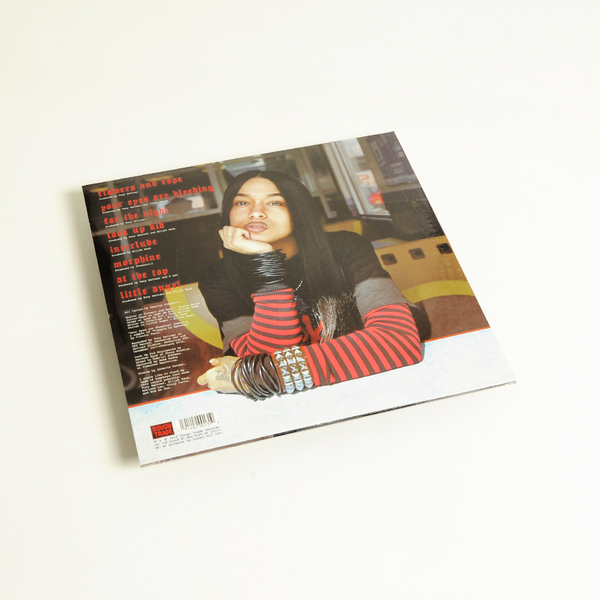After releasing mixtapes like Metallic Butterfly (2014) and Honeysuckle (2015), Princess Nokia’s official debut album is finally here. It’s a deluxe edition of her project 1992, released in. Princess Nokia - Official Site. Buy/Stream; A Girl Cried Red Buy/Stream; 1992 Deluxe Buy/Stream.
Dec 11, 2017 - Download BBA 3th Semester Notes Download BBA 3th Semester Notes of all subjects. The files are in PDF, and PPTX format. Download Notes. Managerial as well as communication skills can be developed through BBA Course. Download BBA 1st year, 2nd year and Final year notes from below provided. Bba study material free download.
But as the track unspools over a laid-back keys loop, the seemingly rigid format begins to break down. By the letter “G,” for “ghetto girl,” Princess Nokia is going off on half-verse tangents—“rainbow clothes / Baby hairs and well-done toes / Single mothers carry those bummy sneakers / What are those?” When she moves to the next letter, it’s casual, unannounced; only afterwards do you realize “H” is for “Hunts Point.” Now instead of her foisting the A-B-C concept on the listener, the listener’s trying to find alphabetical meaning in her free-form journaling. In the final verse, the letters are swirled together, out of order. But “X” is unmissable: “Livin’ in the city, you can never be a xenophobe.”. The way that song grabs attention with a simple idea and then complicates it, enlivens it, and gives it a little political charge is typical for Princess Nokia. She’s one of the most fascinating new forces in music because of how she strikes a balance between high-minded concepts, social specificity, and the playfulness that only hip-hop can afford.
Last year’s self-released EP, 1992, is now available on streaming platforms with eight new tracks, essentially making it a full-fledged album: 1992 Deluxe. It’s a great debut, teeming with the same kaleidoscopic possibility as the city she hails from. Destiny Nicole Frasqueri has been releasing music under the name Princess Nokia for three years, and in some ways she seems a perfect match for an era in which identity—racial and otherwise—has become a newly explicit cultural focal point. “I am a Yoruba, Taino, Puerto Rican girl with really brown skin, full curly hair, and a spirit that does not quit,” she in a recent interview, and her lyrics celebrate other labels, too—nerd, tomboy, goth, ’90s kid, bruja. But one listen to 1992 makes clear that her appeal is less on-paper and more in-the-ear, with her identity inspiring intoxicatingly brash, unpretentiously clever anthems about nonconforming. This is rap that uses the word “diaspora” both out of wokeness and because it’s fun to say.
The husky toughness in her voice is unmistakably a New Yorker’s, but part of her talent is her ability to morph, whether echoing Southern drawls or adopting the vogueish. Her beatmakers trend classicist—using soul textures, crisp snapping drums, bright synth lines, with the occasional skitter of new trap music—and the sturdy backing frees Princess Nokia to experiment with delivery. Aggressive singles like “Tomboy” and “Kitana” have her unloading fast, tight bursts of syllables over a militaristic roar. Other times, she and her producers nail very specific moods: glowering and confident for the supernatural boasts of “Brujas,” pensively jazzy on the NYC commuter’s sketchbook “Green Line.”. A big part of the album’s charm comes from getting to know Frasqueri, who has a knack for imparting her own uniqueness while connecting it to the environment around her.

On the opener, “Bart Simpson,” she sketches herself as a high-school slacker using details that make for both a distinctive personal portrait and a totally relatable vision of teenage struggle: “Eczema so bad I’m bleeding, but I smile and keep it cheesing.” Later, the silky highlight “Saggy Denim” pairs a litany of ’90s touchstones—Sublime, Selena, Calvin Klein—with the rapper’s memories of growing up “in the projects with nasty stairs and halls.”Nokia’s big muse, in fact, is the relationship between one’s own culture, interests, and individuality. Anime, horchata, yaki ponytails—whatever the signifier she’s using in the moment, she implies that people can be defined by the things that give their lives texture but not reduced to them. “The world was born of innies / And I was born an outie,” she raps on “Goth Kid,” a compilation of references to Marilyn Manson and Edward Gorey that revels in the mismatch between the stereotypes others might want to place on her versus the one she’s trying to claim (“Gothic is the pain you feel and not the clothes that’s on your back”). Standing apart gives you power, she’s saying. But her mission clearly is not just about being different. It’s about recognizing the folks who might see themselves in her, and reveling in their shared language.We want to hear what you think about this article.

1992 Princess Nokia Zip Download

1992 Princess Nokia Zip Code
To the editor or write to letters@theatlantic.com.